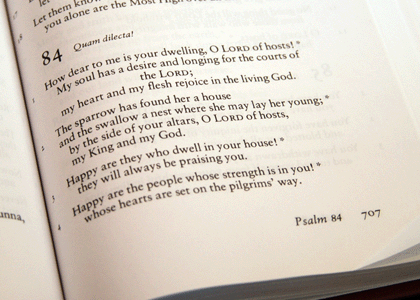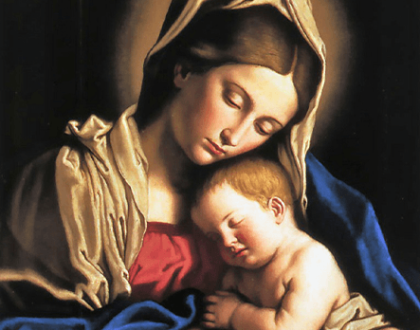Lent is for Coming Home
Growing up Baptist, I thought Christmas lasted 24 hours. I knew about Palm Sunday, Good Friday, and Easter. I was vaguely aware of Lent as “something the Catholics do.” When I began attending an Episcopal church, I started learning about the church year.
I get Advent. Advent is a season of repentance, but that repentance is only a preparation for the celebration of Christ’s birth combined with a joyous anticipation of His return. Reading from the prophets during Advent, I noticed their message was less an apocalyptic puzzle than a reminder “to do justice, and to love kindness, and to walk humbly with your God.”
I could see certain parallels between Advent and Lent, but there were qualitative differences I just couldn’t make sense of. Advent anticipated Christmas, but it also linked an event in the past to an event in the future. Lent looked forward to Easter, which looked back to the Resurrection, and it also seemed to be anticipating something, but what? Prayer, repentance, almsgiving, fasting, and self-denial all seemed directed toward some particular end, but I was a little hazy on what that end was. And what is the “Bright Sadness”?
As Fr. Eirik pointed out in this week’s Old Testament reading, Abram had just rescued his nephew Lot and the entire city of Sodom, but it seems like a hollow victory. He turns down a reward from the king of Sodom. God promises Abram a reward, but even that seems empty with no son to share it and to inherit both the reward and the promise. God promises him not only a son, but descendants as numerous as the stars. “And he believed the Lord; and the Lord reckoned it to him as righteousness.” But the Lord doesn’t stop there. He makes a new covenant, promising a homeland to Abram’s many descendants. He promises a home.
In the other readings, David calls the Lord a stonghold, that is, a fortress. He asks to live in His house, temple, shelter, tent. He is looking for a home. Paul urges us to look to heaven, that is, home. Jesus tells the Pharisees that He would not die until He completed His work and His journey to Jerusalem. In Jerusalem, at the Last Supper, He tells His disciples, “I go to prepare a place for you.”
I have moved many times, and every time I went back to a place I had lived, I found it had changed, in some cases beyond recognition. As the saying goes, “You can’t go home again.” Why do we have this longing for a permanent dwelling, a place of safety, surrounded by our kin?
What if all the good things about home are only shadows and reflections of the new heaven and the new earth? What if Lent anticipates Easter and remembering the Resurrection as we anticipate our own Resurrection and going home? If fasting and self-denial are not means of accumulating righteousness, but simply throwing off every hinderance to our journey home? Is the Bright Sadness simply love of home, and longing to be there? And what happens when we stop feeding the pigs, and turn homeward?
“When he came to his senses… he got up and went to his father.
“But while he was still a long way off, his father saw him and was filled with compassion for him; he ran to his son, threw his arms around him and kissed him.
“The son said to him, ‘Father, I have sinned against heaven and against you. I am no longer worthy to be called your son.’
“But the father said to his servants, ‘Quick! Bring the best robe and put it on him. Put a ring on his finger and sandals on his feet. Bring the fattened calf and kill it. Let’s have a feast and celebrate. For this son of mine was dead and is alive again; he was lost and is found.’”
Recommended Posts

Summer Services and Fellowship
June 14, 2023

Upcoming Events
February 02, 2022

Upcoming Events
November 23, 2021
